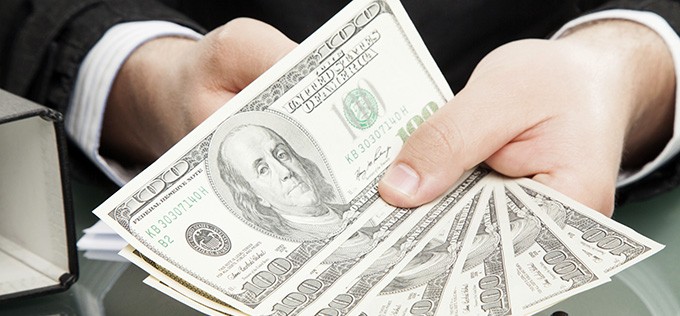Who Are The Unbanked?
Oct 06, 2023 By Triston Martin
Unbanked describes adults who don't utilize banks. While this is a problem in less developed countries, it exists in places like the United States.
The Unbanked: A Better Understanding

Those who don't have bank accounts typically pay with cash, money orders, or prepaid debit cards. They may use them if they have access to other financial services like check-cashing or payday loans.
Who Doesn't Have Access To Banking Services?

5% of American adults did not have a bank account in 2020. Another 13% were underbanked, meaning they had a bank account but also used an alternative financial service (AFS) like a money order or payday loan. Contrarily, 81% of people were completely banked, meaning they had their bank account and never used a money transfer service.
Unbanked Americans
More than 7 million, or 5.4%, of American families, were unbanked in 2019, according to a study by the Federal Deposit Insurance Corporation (FDIC). This number is the lowest since the poll began in 2009.
The FDIC found that households with low, fluctuating, or no income had a significantly greater rate of not having a bank account than other demographics. People who did not complete high school were more likely to be unbanked than those who did.
Reasons Why Some People Don't Use Banks
According to the FDIC survey, those who are unbanked primarily do so due to financial constraints; specifically, they do not have enough money to meet banks' minimum requirement balances. Another way of putting it is that those who aren't part of the banking system don't have easy access to the services and goods that would be useful to them.
Some people, such as those who are extremely low-income or whose income is highly unpredictable, may not have the luxury of waiting for a bank to clear their funds before they can spend their money. They go to a check-cashing business because they need quick cash, even if it costs them money.
Remote Banking With Mobile Device
Focus group data collected by the FDIC in 2017 indicated that mobile banking satisfied customer expectations in places lacking traditional banking. The main benefits of mobile banking are easier access to banking services, increased financial agency for customers, and, in some situations, lower service fees. Customers of banks that cater to mobile users can get alerts and other monitoring tools for their finances on the go.
Customers benefit from these notifications and tools because they save money on banking costs, stay on top of their finances, make better decisions at the moment, and keep better records, all of which contribute to fewer payment disputes.
Thanks to advancements in mobile technology, people may now use applications to make cashless, paperless, peer-to-peer (P2P) payments to one another. Increases in payment processing speed and ease are possible because of technological advancements that benefit consumers.
Actions Taken To Expand Access To Banking
While the percentage of Americans without bank accounts has decreased annually since 2011, the federal government is still pursuing many initiatives targeted at the unbanked and underbanked. The FDIC issued a "tech sprint" challenge in June 2021, urging member banks to discover resources and applications that could inspire more consumers to use banking services.
Economists have made suggestions for the unbanked, such as using the post office or another government agency as a banking alternative. Limiting overdraft fees has been shown to increase bank account ownership, according to a study conducted by the Federal Reserve and Dartmouth College in 2021.
Why Does Not Having A Bank Account Present A Problem?
Lack of access to financial institutions is a problem for many people. The fees associated with cash checking services and payday loans are substantially higher than those associated with traditional banking options.
Also, folks can't build up the records necessary to prove their creditworthiness without a bank account. Therefore, a payday loan may be the only alternative when it comes time to pay for an unexpected car repair or medical bill. These additional expenses harm families already trying to make ends meet.
Conclusion
Not all unbanked populations could be reached even if this technique were widely applied. Not everyone will be reached, and not everyone who is reached will be able to save money, improve their credit scores, and reduce the cost of their financial services. With about ten million unbanked households in the United States, even a moderate success rate might significantly enhance the quality of life for hundreds of thousands of low-income families.

The Best Cell Phone Insurance 2022
Oct 08, 2023
Many cellphone insurance policies provide comparable coverage, but evaluating each insurer and policy is crucial before choosing one carefully. The best cellphone insurance plans have affordable low deductibles and make filing a claim simple. When choosing a service, additional elements like bundle discounts, multi-device possibilities, and client reviews may also be helpful.

Top Best Buy Now, Pay Later Apps in 2022
Feb 09, 2024
The "buy now, pay later" financing scheme has grown in popularity over the last few years, partly because of the pandemic's impact on the internet shopping. With these programs, your monthly payment is divided into many equal payments with no interest or charges, making it easier for you to manage your finances. In certain cases, plans may be used both digitally and in shops, depending on the application.

Best Time To Buy A Car
Dec 19, 2023
A new car is one of the most significant purchases you may make in any given year, regardless of whether you're buying it as a present for someone else or as a treat for yourself.

All About AmEx Pay It Plan It
Nov 04, 2023
Even though it's fantastic to see American Express shaking up the standard monthly billing cycle and giving cardholders more flexibility when it comes to paying off purchases, the Pay It Plan It programme isn't particularly flexible. For most cardholders, we do not believe this to be a valuable perk.

Things to Consider When Starting a Mutual Fund
Nov 10, 2023
Investors who take part in a company-sponsored retirement plan or who have an individual investment portfolio are frequently confronted with a bewildering selection of funds to choose from, many of which they do not fully understand in terms of their potential impact on the value of their investment as a whole.

Learn and Understand: What Is Business Interruption Insurance?
Oct 05, 2023
Profits lost by enterprises as a result of an occurrence are covered by business interruption insurance. It may result from something like a fire or a natural disaster. Business interruption insurance isn't offered as a standalone policy, but it can be added as a rider or addition to a property/casualty insurance policy or a bundle policy.

How To Trade Silver Successfully
Dec 03, 2023
Learn how to trade silver successfully with our step-by-step guide. Discover the different strategies and tips used by experienced traders that will help you maximize your profits when trading silver.

Comparison Between FutureAdvisor and Betterment
Nov 05, 2023
Betterment and FutureAdvisor are totally different robo-advisories, but they both approach investing in a similar way. Although the specifics of portfolio construction and rebalancing differ, both, like other robo-advisors, heavily depend on Modern Portfolio Theory (MPT). Furthermore, FutureAdvisor and Betterment both incorporate tax loss collecting as part of the package, unlike certain robo-advisors that charge a premium for this feature.

Learning and Determining the Value of a Preferred Stock
Jan 24, 2024
Preferred stock prices are calculated by discounting the present value of dividends paid in the future by the stock's rate of return. Due to the long-term nature of the preference attached to this stock, the Price of a share of preferred stock is typically calculated as the dividend per share multiplied by the required rate of return.

How New York Became A Financial Center
Nov 15, 2023
Wall Street is the core of American finance, even if London is the world's biggest financial city. Not always, though. The first bank and stock exchange in the U.S. were created in Philadelphia, not New York City.

Champions School of Real Estate Review in Detail
Feb 02, 2024
With licence courses in real estate, loan origination, house inspection, and appraisal, Champions provides a great deal of opportunity to persons interested in working in all aspects of the real estate industry. In addition to that, they provide a comprehensive selection of credentials that real estate agents and brokers can earn.

What Is a Budget? Tips To Make It
Dec 24, 2023
Budgeting is an important foundational skill for managing one's own money. However, the term "budget" might evoke negative connotations. Additionally, there are many approaches to budgeting, but ultimately, it all comes down to arranging one's financial resources and keeping tabs on their use. Budgeting should liberate you, not bind you.